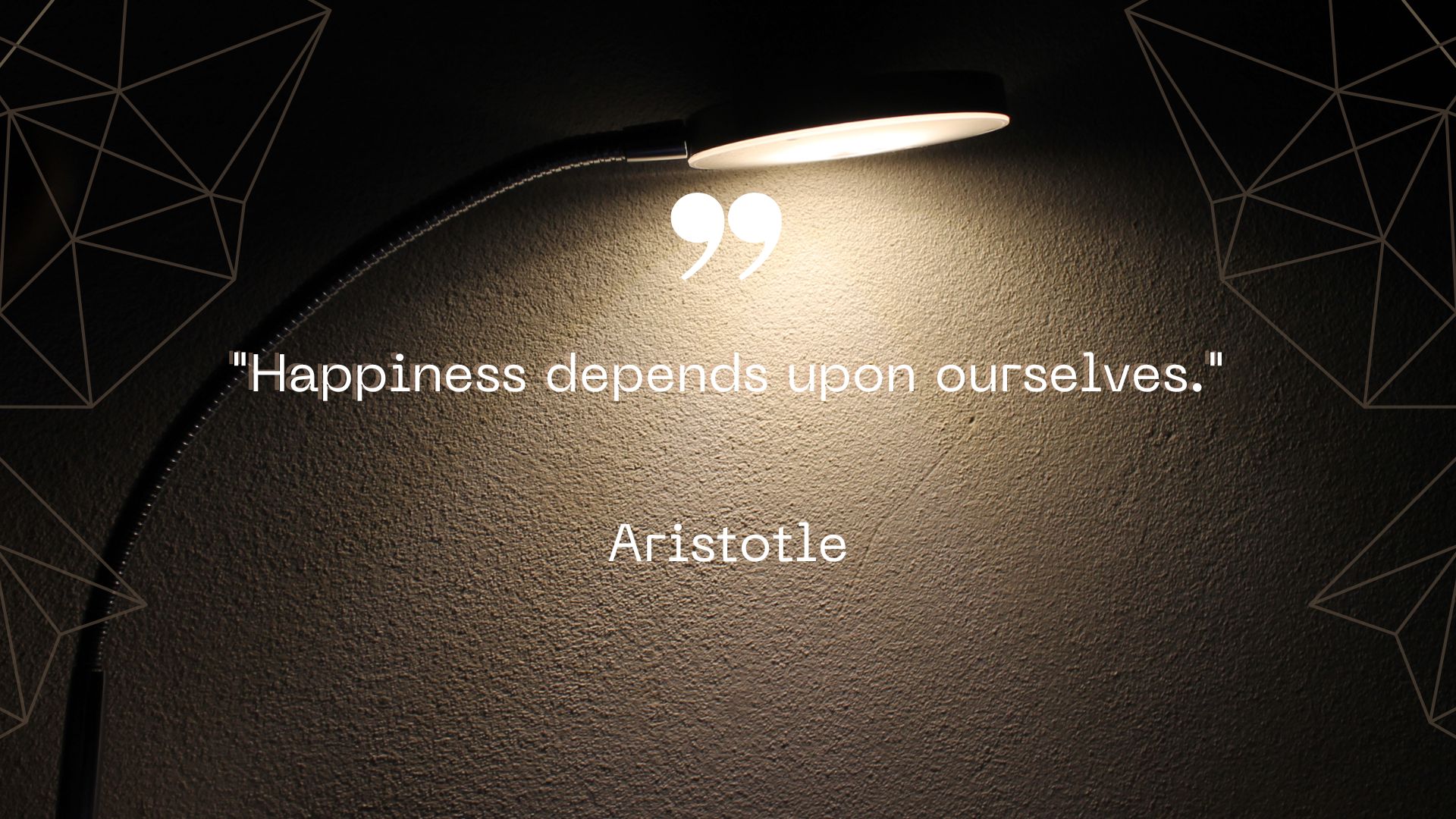“Happiness depends upon ourselves.”
–Aristotle
Aristotle, one of history’s most renowned philosophers, imparted timeless wisdom that continues to resonate with us today. His statement, “Happiness depends upon ourselves,” encapsulates a profound insight into the nature of human well-being and provides valuable guidance on how to cultivate a fulfilling life. This explanation delves into the meaning and significance of this quote, shedding light on its implications for personal growth and happiness.
Meaning and Interpretation: Aristotle’s quote emphasizes the intrinsic nature of happiness and its connection to our own actions and mindset. Unlike external circumstances, which we often cannot control, our inner disposition and choices play a pivotal role in determining our overall happiness. This suggests that true contentment is not reliant on external factors, but rather on our own attitudes, behaviors, and responses to life’s challenges.
Taking Responsibility for Happiness: By asserting that happiness depends upon ourselves, Aristotle encourages us to take an active role in shaping our emotional well-being. This involves recognizing that we have agency over our thoughts, emotions, and actions. Instead of relying on external validation or seeking happiness solely through material possessions, we are empowered to cultivate a positive and resilient mindset that can lead to lasting joy.
The Pursuit of Virtue: Aristotle’s philosophy places great importance on the cultivation of virtues as a means to attain happiness. He believed that practicing virtues, such as courage, wisdom, and kindness, contributes to a harmonious and balanced life. By aligning our actions with virtuous principles, we not only enhance our own well-being but also contribute positively to the well-being of those around us.
Balancing External and Internal Factors: While emphasizing the role of internal factors in achieving happiness, Aristotle does not dismiss the significance of external conditions entirely. Instead, he suggests that while external circumstances may influence our experiences, our responses to them are within our control. This perspective encourages us to navigate challenges with resilience and adaptability, minimizing the impact of negative external events on our overall happiness.
Cultivating Self-Awareness: To effectively embrace Aristotle’s wisdom, cultivating self-awareness becomes crucial. By introspecting and understanding our values, desires, and emotional triggers, we can make informed choices that align with our personal vision of happiness. This process of self-discovery enables us to prioritize activities, relationships, and experiences that genuinely contribute to our well-being.
Conclusion: Aristotle’s assertion that “Happiness depends upon ourselves” encapsulates a fundamental truth about the nature of human happiness. It encourages us to recognize our agency in shaping our well-being, highlighting the significance of cultivating a positive mindset, practicing virtues, and embracing challenges with resilience. By internalizing this wisdom, we can embark on a transformative journey towards a more meaningful and fulfilling life.




